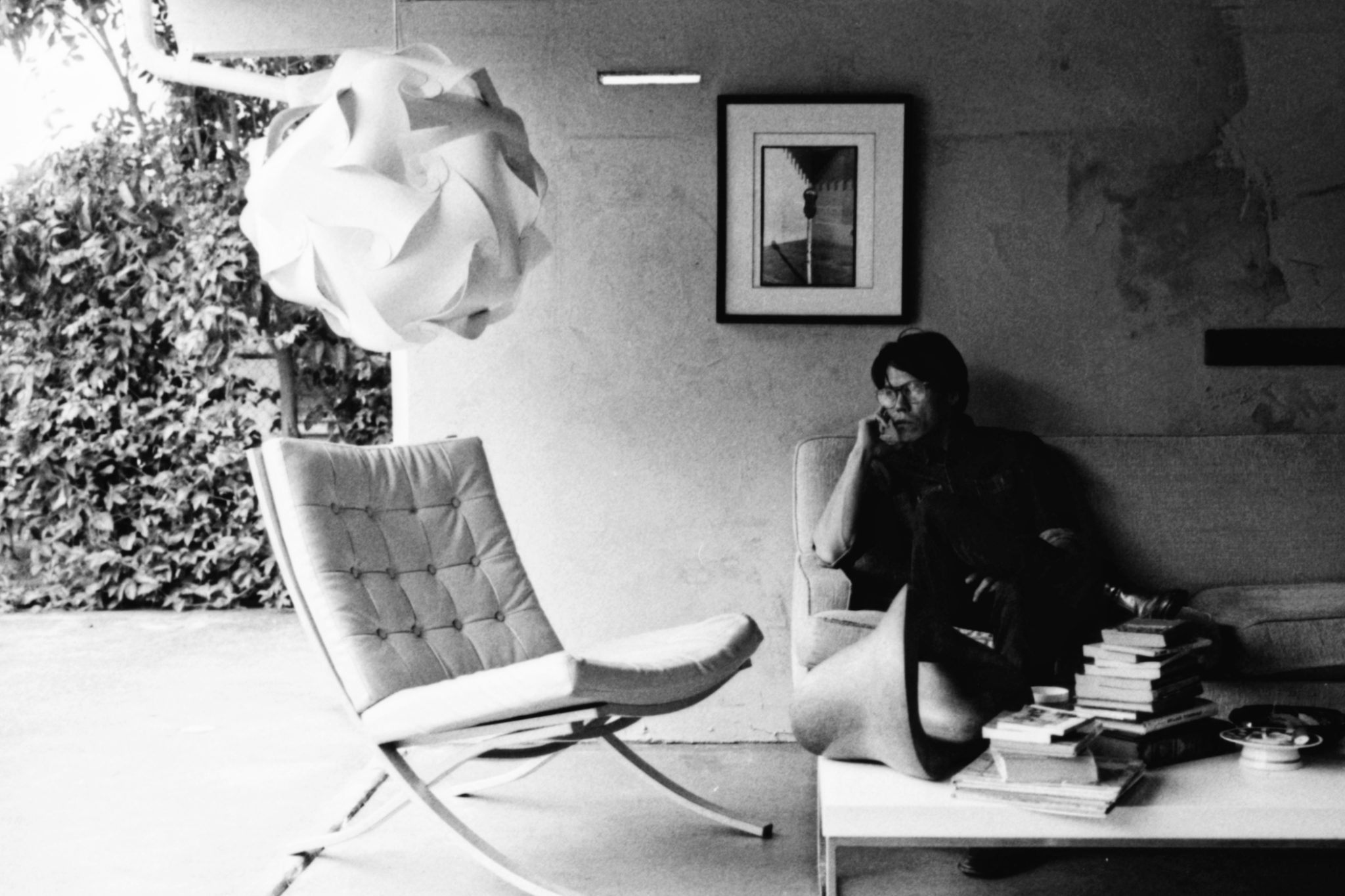Text by Sonny Ganaden, with Tina Grandinetti
It’s the middle of a Tuesday, and Christopher Kahunahana orders another round of drinks at the Old Spaghetti Factory overlooking Honolulu’s Kaka‘ako waterfront. It’s a place long-forgotten by those without children, a self-contained universe replete with stained glass, a reconstructed trolley car, creaky wood dating back paneling, and menu items dating to Honolulu’s Frank Fasi administration. A place you think you know but you’ve got it all wrong about. “Brah, this place has cheap beer, AC, and look at the view,” Kahunahana remarks. “I used to work in a film lab right down the street.”
Handling chemicals in the dark room seems like a lifetime ago for Kahunahana. Most of Honolulu has a “Chris” story, and most of them were documented on nightlife blogs during the party renaissance that occurred in the city’s Chinatown over the last decade. After a childhood in Waimānalo and Kailua, the oldest of three siblings spent nearly a decade in San Francisco running a variety of clubs and galleries, then moved to New York, before making his way home in 2004 to open Nextdoor, an expansive night club on Honolulu’s Hotel Street with vaulting crimson brick walls, murals by visiting urban artists, and for most of its life, no air conditioning. When one co-owner left the business and another passed away in a tragic accident, Kahunahana found himself as the club’s sole owner, hanging on with low funds and lots of friends.
Check the old websites, and you’ll see Kahunahana running a club with liquor out of a backpack and a one-night license; zombie Kahunahana manning the door behind a repurposed church lectern; a beleaguered Kahunahana mopping a slippery dance floor after a famous DJ poured vodka down some club-goer’s hatch. For those who were in the scene, who unconsciously documented it in part because it was fleeting, it was the best city in the world. And it was Kahunahana’s disarming, self-effacing charm that made much of it happen, like a character out of fiction, or rather, animation. To see him as a filmmaker—a legitimate one with ambitions to take Hawai‘i’s cinema and Hawai‘i’s story to the world—is new to those who knew him from the parties and the scene.
But there was always another Chris, the guy in the daytime, who spoke quietly of Akira Kurosawa and Ingmar Bergman, who, when meeting strangers, introduced himself as a filmmaker. Kahunahana made eight films for Showdown in Chinatown, which originally took place at Nextdoor, a competition that gives local creators 24 to 72 hours to shoot and submit a short film based off a common theme. A few times, he won. Most often, he couldn’t make the deadline. “I could tell where I was artistically, even though they mostly sucked,” he says of the shorts. “I could see where my vision was headed and how I could become more refined.”
Then, opportunity struck. After he sold the club a year ago, Kahunahana began work on a script titled Lāhainā Noon, which takes its name from the local colloquialism for the summer solstice phenomenon when the sun passes directly overhead, leaving figures shadowless. The story follows a few local characters, as their shadows, acting as their subconscious forms, act out unspoken desires. This script, along with a feature-length one Kahunahana dubbed Karaoke Kings, became part of an application process that could further the dream; a chance at a fellowship with Native Lab. Sure enough, he and his screenplays were accepted.
Over the course of several weeks, Kahunahana was counseled by some of the best native filmmakers on the planet, such as Chris Eyre, who directed the 1998 movie Smoke Signals, and Runningwater, who has established native film labs around the world. “When they said I was going to an Apache reservation, brah, I thought I was headed to a Hawaiian homestead for a workshop. They had us at this science-fiction hotel in Mescalero [New Mexico] in the Inn of the Mountain Gods.” He was instructed to just take it all in, and later, to produce. “We had to really interrogate if we identify ourselves as native artists, or as artists who happen to be native,” he explains. The workshop shaped Lāhainā Noon, which premiered at the 2014 Hawaii International Film Festival.
Kahunahana is currently developing Karaoke Kings, which he describes as “like Rocky but for karaoke in Honolulu,” about a guy trying to make his dreams happen. The truth is, being a club owner was a stepping-stone to the true vocation. Kahunahana has always been a filmmaker in waiting, and if he was authoring his own biography, Nextdoor might be a footnote, cited as the source of material for a new life of storytelling. But for filmmaking, there may have been no better a training ground. “This is more than just a film, it’s about managing, budgeting, running something with a lot of people,” he says.
Something about the story arc, about the redemptive capacity of arts and making hard work look fun, is reminiscent of Mahatma Gandhi’s famous counsel for agents of social change: “First they ignore you, then they laugh at you, then they fight you, then you win.” Kahunahana takes the last sip of his beer and amends it with experience: “Just keep showing up for long enough, and after everybody else self-destructs, you win!” he cackles with a gap-toothed grin. Then, he’s off to finish the last edits of the movie.






